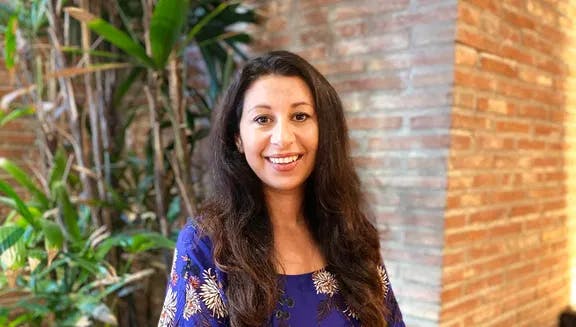#FoundersFridays: Meet Puck Middelkoop

#FoundersFridays is a StartupAmsterdam interview series: for entrepreneurs, by entrepreneurs. Each hero answers questions on their entrepreneurial journey, their learnings, milestones and bottlenecks, as well as on Amsterdam and the Dutch startup scene. It’s a platform for entrepreneurs to speak their minds freely and pass on their learnings to anyone who’s thinking about founding a startup as well.
This month we spoke with Puck Middelkoop, founder of Hulaaloop - a platform where Dutch parents and parents-to-be can borrow clothes for their kids between 0-2 years, to dress them fittingly in the middle of a growth spurt. By borrowing instead of buying, parents are able to save money, time and storage, as well as save the planet by participating in circular practices.
How did your career journey lead you to found Hulaaloop? What problem did you set out to solve?
At some point in my career, I found myself at a tech startup based in Amsterdam, collaborating closely with the company's founders. This was my first introduction to the startup scene, and it gave me a lot of energy. What I liked the most was the fast-paced environment and the mentality of “getting sh*t done”. Simultaneously, I discovered inspiring books like “The Art of Agile Development”, ‘’The Lean Startup’’ and “The Mom Test”, to name a few.
Once I gave birth to my first daughter, I encountered a challenge - I was constantly buying kids’ clothes due to her rapid growth in the first months. She would quickly outgrow the clothes, they would start piling up.. It felt frustrating because I was spending a lot of money, it didn’t feel sustainable and I wanted to spend my time on other things as a mom with a newborn. That’s how I came up with Hulaaloop. With a Hulaaloop membership, parents can borrow kids' clothes and swap them when the child grows and needs a bigger size. The solution is particularly great during their growth spurt since kids shoot through eight sizes in the first 24 months.

You launched in 2017. Talk to us about the different phases Hulaaloop went through. Were there any pivots and if so, how did you navigate them and what did you learn?
When we started Hulaaloop, we were a founding team of two founders, one of whom happened to be a close friend of mine. After one year, my friend chose to step away, realizing that entrepreneurship wasn't for her. I have learned that it's very important to put things on paper once you decide to split the business relationship. We remain good friends though!
During our first year, we received a subsidy from the Municipality of Amsterdam West. This gave us a bit more breathing room to further validate our concept, which was our main focus. We meticulously adjusted our solution based on customer feedback, honing in on the details, as many assumptions were made during Hulaaloop's inception. At some point, I decided to take on freelancing jobs alongside my entrepreneurial journey. They were all related to entrepreneurship and the circular economy. Given that Hulaaloop is a circular business, I really wanted to understand this topic better and truly make an impact in the retail industry. Part-time entrepreneurship was a good fit back then, especially because the knowledge that I gained through freelancing complemented and enriched the knowledge that I could apply to Hulaaloop.
What makes Amsterdam a great city and a great ecosystem for a startup founder?
The good thing about Amsterdam is that there are so many events to attend and communities to join. I actively seek out specific events featuring inspiring individuals or covering topics that offer valuable learning experiences to help maintain my focus.
At the moment, I have an advisory group comprising very inspiring people with diverse (international) backgrounds, all of whom I've had the pleasure of meeting in Amsterdam. As a solo entrepreneur, it's very nice to be surrounded by this group. I feel like they are part of my team: they are open, honest, and ask critical questions.
In addition to this, I serve as a startup mentor at the Amsterdam University of Applied Sciences, guiding student entrepreneurs. This role gives me access to the academic ecosystem of Amsterdam, as well as to inspiring colleagues immersed in entrepreneurship on a daily basis.
Are there any upcoming projects or milestones that you're particularly excited about for Hulaaloop?
The year 2023 marks a very exciting period for Hulaaloop. I was approached by a corporate retail company to set up a strategic partnership. Therefore, Hulaaloop is ready to scale.
We will continue validating the concept because times have changed since I started this business. There is also more momentum for a circular business, such as Hulaaloop. The first focus will be on kids' clothes for those up to 2 years old, and kids' shoes for up to 5 years will be added at the beginning of 2024. We are eager to experiment with extending our offerings to include maternity wear, occasional clothes, and clothes for older children. Stay tuned as soon we’ll make an announcement regarding Hulaaloop’s new corporate partner.
What is Hulaaloop’s most urgent ask for the upcoming 6-12 months?
It's quite simple, really. If you read this story, please spread the word about Hulaaloop, especially to parents (and parents-to-be). If you’re not a parent with young kids, consider buying a Hulaaloop gift card for family, friends or colleagues. Take a look at the Hulaaloop website.
At the same time, I'm actively seeking collaborations with kids' clothing brands. I’m interested in partnerships where brands keep ownership of the clothes, donate older collections or are flexible with purchasing volume and prices. I firmly believe that the system change towards a circular future in the fashion industry requires collective efforts from different stakeholders in the industry. So, if you see any collaborations possible, please reach out to me via LinkedIn.
What advice would you give to aspiring entrepreneurs looking to start a circular business, especially in the fashion industry?
Your primary focus should always be on achieving a problem-solution fit. Regardless of your industry, you need customers who want to pay for your product or service. The challenge in the fashion sector, however, lies in navigating the emotional and identity-related aspects tied to the clothes people wear. Circularity is complex and you cannot make everything perfect from the beginning, so take it step by step.
The only thing where I really want to challenge entrepreneurs active in the fashion industry is to avoid virgin materials. Embrace creativity! There are so many clothes out there already, so be creative and fix this industry with the available resources.
If you’re an Amsterdam-based founder working on an innovative solution that solves an urban or social challenge, and you’d like to share your story with our audience, email Alexandra at a.belicova@amsterdam.nl.
Related articles
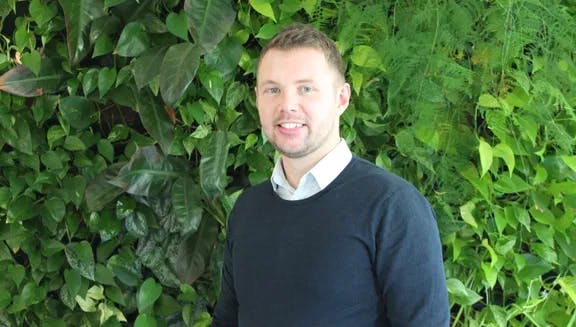
#FoundersFridays: Meet Nikolay Tsanev
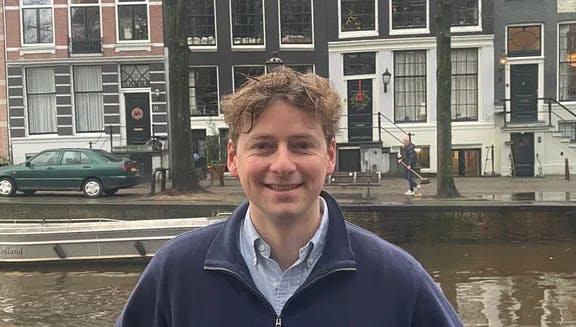
#FoundersFridays: Meet Joris Oudejans

#FoundersFridays: Meet Tim van Alphen

#FoundersFridays: Meet Karoll Ramamonjisoa
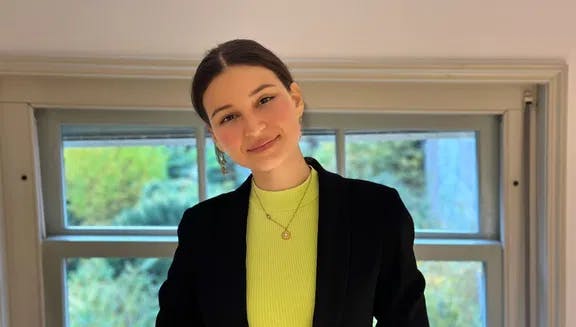
#FoundersFridays: Meet Karolina Fedorowicz
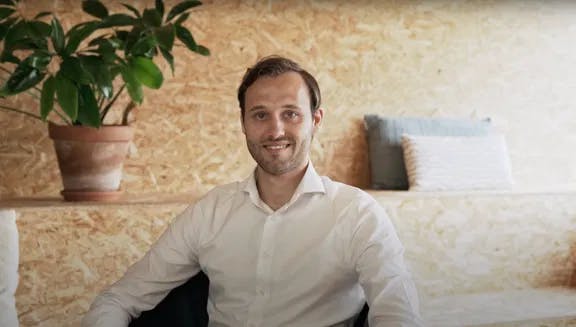
#FoundersFridays: Meet Niels Baay

#FoundersFridays: Meet Tommie Koppens

#FoundersFridays: Meet Emily Huberts

#FoundersFridays: Meet Micky Chen
